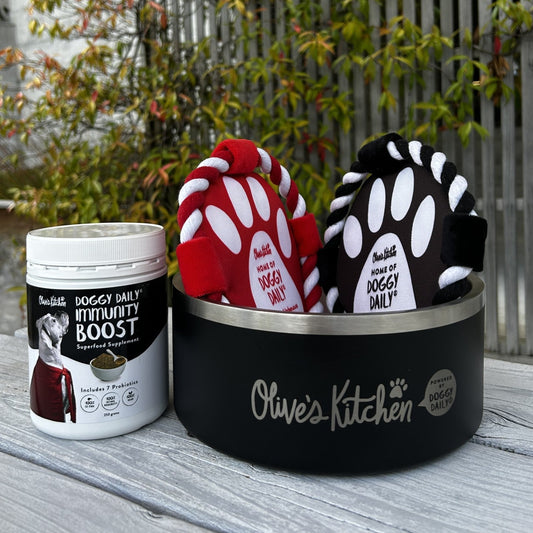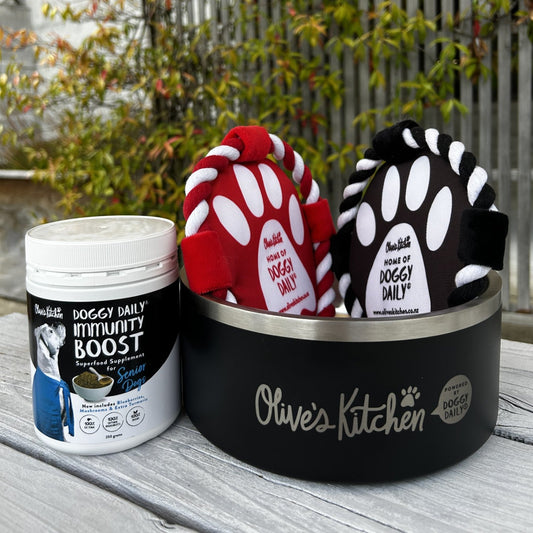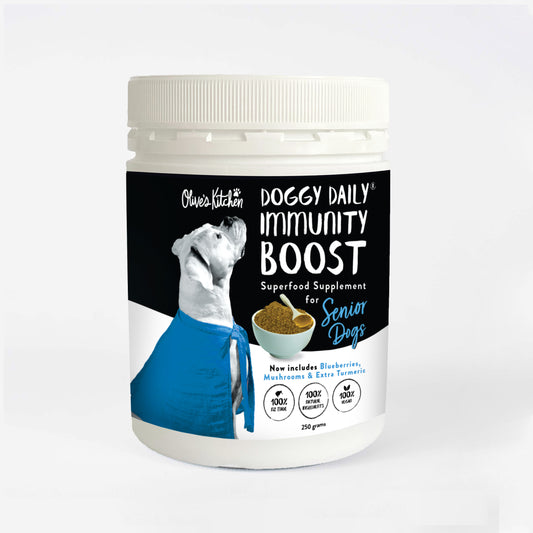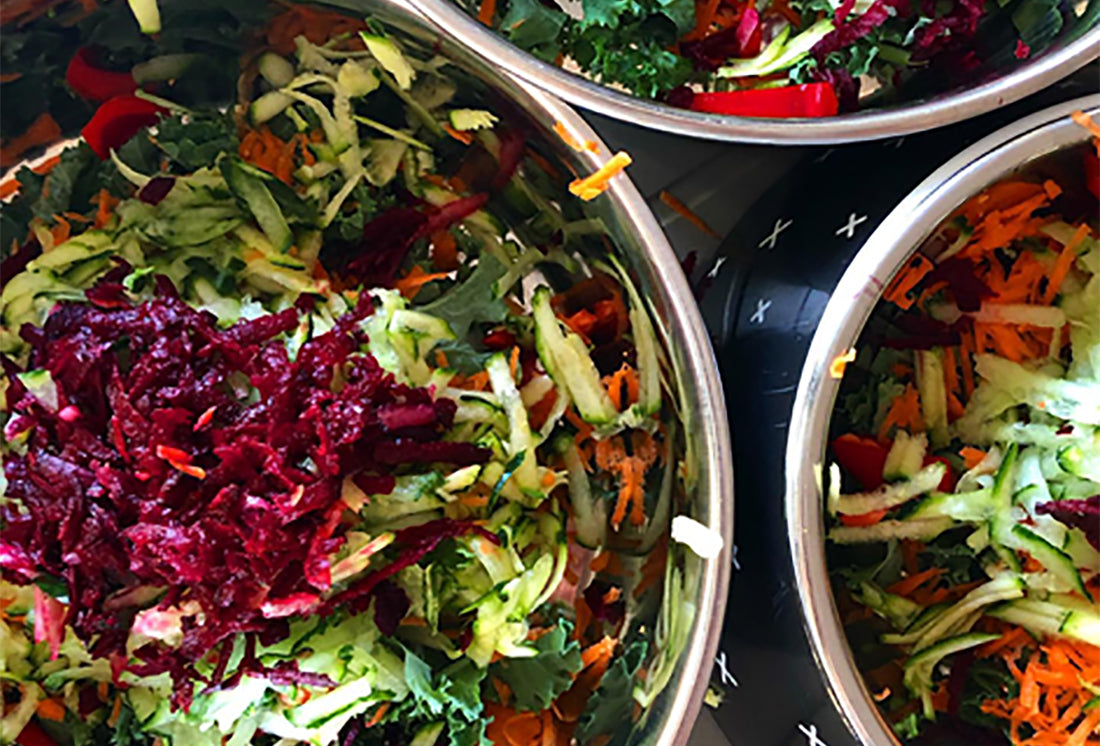Just like their owners, dogs need a balanced diet to keep them healthy and prevent inflammation and chronic disease. More specifically, they need macronutrients (protein, fat and carbohydrates) for energy and micronutrients (vitamins and minerals) to support the healthy functioning of their body.
What’s the best way to get the right balance of macro and micronutrients?
Whole food! For dogs that means raw (i.e. unprocessed, unadulterated) muscle meat, bones and organs as well as vegetables and plants.
Did you say vegetables for dogs?
While opinion is divided amongst vets and pet nutritionists about the benefits of a pure meat (carnivore) diet versus a meat and plant-based diet (omnivore) for dogs, a pure meat diet is often deficient in a number key nutrients. My preference is to start with fresh, raw food and then let my pet tell me what they enjoy. Often the answer is raw meats plus broccoli, spinach and grated carrots in our house!
Superfoods are another nutrient powerhouse that can form a critical part of a pet’s diet. In just a few concentrated teaspoons, your pet can access important vitamins like vitamin A, vitamin C and essential fatty acids that benefit both sick animals on the recovery trail and healthy pets who may not be getting enough nutrients from their traditional diet.
How about Premium pet food?
Many thousands of hours have been spent designing top of the line pet food, and yet, as a Vet, I am still seeing pets who are simply not thriving. The answer to many of the health issues that present at my practice on a daily basis can be alleviated by whole, fresh food. Fresh foods provide many living benefits that are simply unavailable in processed pet foods.
As an example, ..... some pets being fed commercial diets are deficient in available zinc which helps to boost the immune system and is essential for optimal skin, hair and coat production. It also helps to build solid toenails. A lack of essential zinc can very quickly turn our pets into a medical minefield with symptoms such as upset tummies, bad skin and allergies. One of the major tip-offs for a zinc-deficient diet is to when your pet’s wounds don’t heal well.
Zinc isn’t readily available in some pet diets, especially if you are trying to raw feed but there’s an easy solution. By adding some organic NZ seaweed to your dog bowl, you hit the zinc jackpot, plus it tastes great!
Probiotics are another gut health essential ally which can be difficult to access from a RAW food diet alone. Green tripe (i.e. tripe in its natural state) does provide a rich source of nutrients, including probiotics, for your dog’s diet but it smells and looks rather odd and can take a bit of getting used to. Probiotic powders can often be a more convenient way of maintaining a healthy microbiome in your dog - (see my microbiome 101 blogpost for more information about the importance of gut health).
In summary, the impact of your pet's diet on their overall health and wellbeing is HUGE. Start with a fresh, raw diet of meat and plants with a side serving of superfoods and you will soon see the difference!
Dr Heidi Ward - McGrath BVSc
Holistic Veterinarian
Cat Mum
Dog Mum





